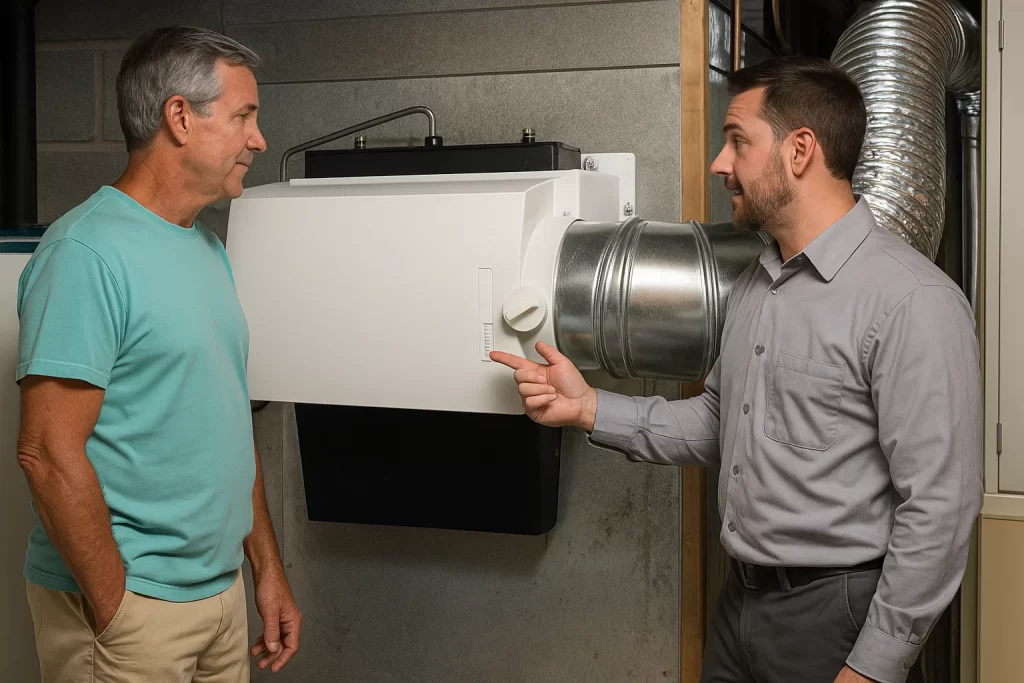Florida’s warm, humid climate is a major part of what makes the Sunshine State so inviting – but that humidity can also pose serious challenges for your HVAC system. High moisture levels in the air don’t just make it feel hotter.
They can strain your cooling system, promote mold growth, and compromise indoor air quality. Understanding how Florida’s humidity affects your HVAC system and taking proactive steps to combat its impact will keep your home comfortable, healthy, and efficient all year long.

The Impact of High Humidity on HVAC Performance
Florida’s humidity often hovers above 70%, meaning your air contains a large amount of moisture. When humid air enters your home, your air conditioner has to work harder – not just to cool the air, but also to remove excess moisture. This additional workload can:
- Increase energy consumption: The more moisture your system must extract, the longer it runs, leading to higher energy bills.
- Cause wear and tear: Constantly running to manage humidity can wear down components faster, leading to costly repairs and shorter system lifespan.
- Reduce comfort: Even if the temperature is cool, high humidity can make indoor air feel sticky and uncomfortable.
Mold and Mildew Risks in Humid Environments
Excess moisture creates the perfect environment for mold and mildew growth inside your home. Mold can develop in hidden places such as ductwork, HVAC drip pans, and behind walls. This not only damages your home but also negatively affects indoor air quality, aggravating allergies and respiratory issues.
Mold spores circulated by your HVAC system can spread throughout your living spaces, posing health risks to your family, especially those with asthma or sensitivities.
Fighting Back: Air Purifiers and Dehumidifiers
To combat the effects of Florida humidity, consider integrating air purifiers and dehumidifiers with your HVAC system. Air purifiers filter out airborne pollutants, including mold spores, dust, and allergens, improving indoor air quality. Many modern HVAC systems can be equipped with whole-home air purifiers that operate seamlessly with your cooling system.
Dehumidifiers specifically remove moisture from the air, reducing humidity levels to a comfortable range (ideally between 30-50%). Whole-home dehumidifiers installed alongside your HVAC system can take the pressure off your AC, improving efficiency and preventing mold growth.
Essential HVAC Maintenance to Combat Humidity
Regular HVAC maintenance is crucial in Florida’s humid climate to keep your system running efficiently and prevent moisture-related issues:
- Change air filters often: Humidity causes filters to clog faster. Dirty filters restrict airflow and reduce your system’s ability to remove moisture. Change filters every 1-2 months during humid seasons.
- Clean coils and drain pans: Evaporator coils can collect moisture and debris, while drain pans and condensate lines can clog, leading to water buildup and leaks. Regular professional cleaning prevents mold growth and water damage.
- Inspect ductwork: Leaky or poorly insulated ducts can allow humid air to enter and spread mold spores. Sealing and insulating ducts improves air quality and system efficiency.
- Schedule professional tune-ups: Annual or biannual inspections by our licensed HVAC technicians ensure your system operates optimally, addressing refrigerant levels and mechanical issues that impact dehumidification.
Making families happy on the Space Coast since 1975. Schedule an appointment with Complete Air & Heat, Inc.
